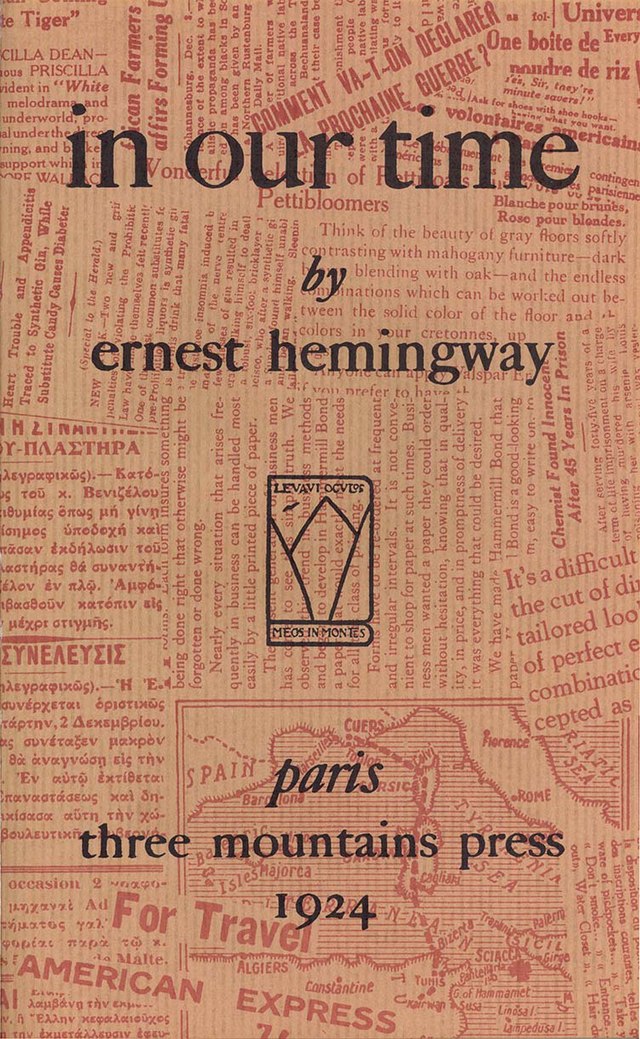from In Our Time (1924)
THE REVOLUTIONIST
In 1919 he was traveling on the railroads in Italy, carrying a square of oilcloth from the headquarters of the party written in indelible pencil and saying here was a comrade who had suffered very much under the Whites in Budapest and requesting comrades to aid him in any way. He used this instead of a ticket. He was very shy and quite young and the train men passed him on from one crew to another. He had no money, and they fed him behind the counter in railway eating houses.
He was delighted with Italy. It was a beautiful country, he said. The people were all kind. He had been in many towns, walked much, and seen many pictures. Giotto, Masaccio, and Piero della Francesca he bought reproductions of and carried them wrapped in a copy of Avanti. Mantegna he did not like.
He reported at Bologna, and I took him with me up into the Romagna where it was necessary I go to see a man. We had a good trip together. It was early September and the country was pleasant. He was a Magyar, a very nice boy and very shy. Horthy's men had done some bad things to him. He talked about it a little. In spite of Hungary, he believed altogether in the world revolution.
"But how is the movement going in Italy?" he asked.
"Very badly," I said.
"But it will go better," he said. "You have everything here. It is the one country that everyone is sure of. It will be the starting point of everything."
I did not say anything.
At Bologna he said good-bye to us to go on the train to Milano and then to Aosta to walk over the pass into Switzerland. I spoke to him about the Mantegnas in Milano. "No," he said, very shyly, he did not like Mantegna. I wrote out for him where to eat in Milano and the addresses of comrades. He thanked me very much, but his mind was already looking forward to walking over the pass. He was very eager to walk over the pass while the weather held good. He loved the mountains in the autumn. The last I heard of him the Swiss had him in jail near Sion.
*****
from Mr. and Mrs. Elliot
The three of them, with several of Elliot's friends who called him Hubie, went down to the château in Touraine. They found Touraine to be a very flat hot country very much like Kansas. Elliot had nearly enough poems for a book now. He was going to bring it out in Boston and had already sent his check to, and made a contract with, a publisher.
In a short time the friends began to drift back to Paris. Touraine had not turned out the way it looked when it started. Soon all the friends had gone off with a rich young and unmarried poet to a seaside resort near Trouville. There they were all very happy.
Elliot kept on at the château in Touraine because he had taken it for all summer. He and Mrs. Elliot tried very hard to have a baby in the big hot bedroom on the big, hard bed. Mrs. Elliot was learning the touch system on the typewriter, but she found that while it increased the speed it made more mistakes. The girl friend was now typing practically all of the manuscripts. She was very neat and efficient and seemed to enjoy it. Elliot had taken to drinking white wine and lived apart in his own room. He wrote a great deal of poetry during the night and in the morning looked very exhausted. Mrs. Elliot and the girl friend now slept together in the big mediaeval bed. They had many a good cry together. In the evening they all sat at dinner together in the garden under a plane tree and the hot evening wind blew and Elliot drank white wine and Mrs. Elliot and the girl friend made conversation and they were all quite happy.
